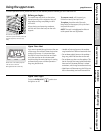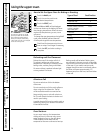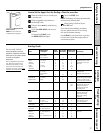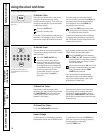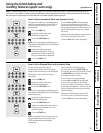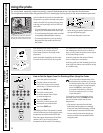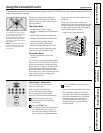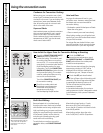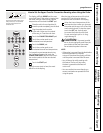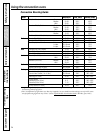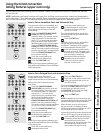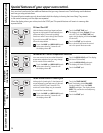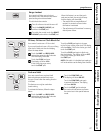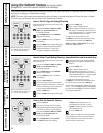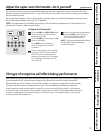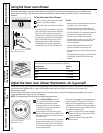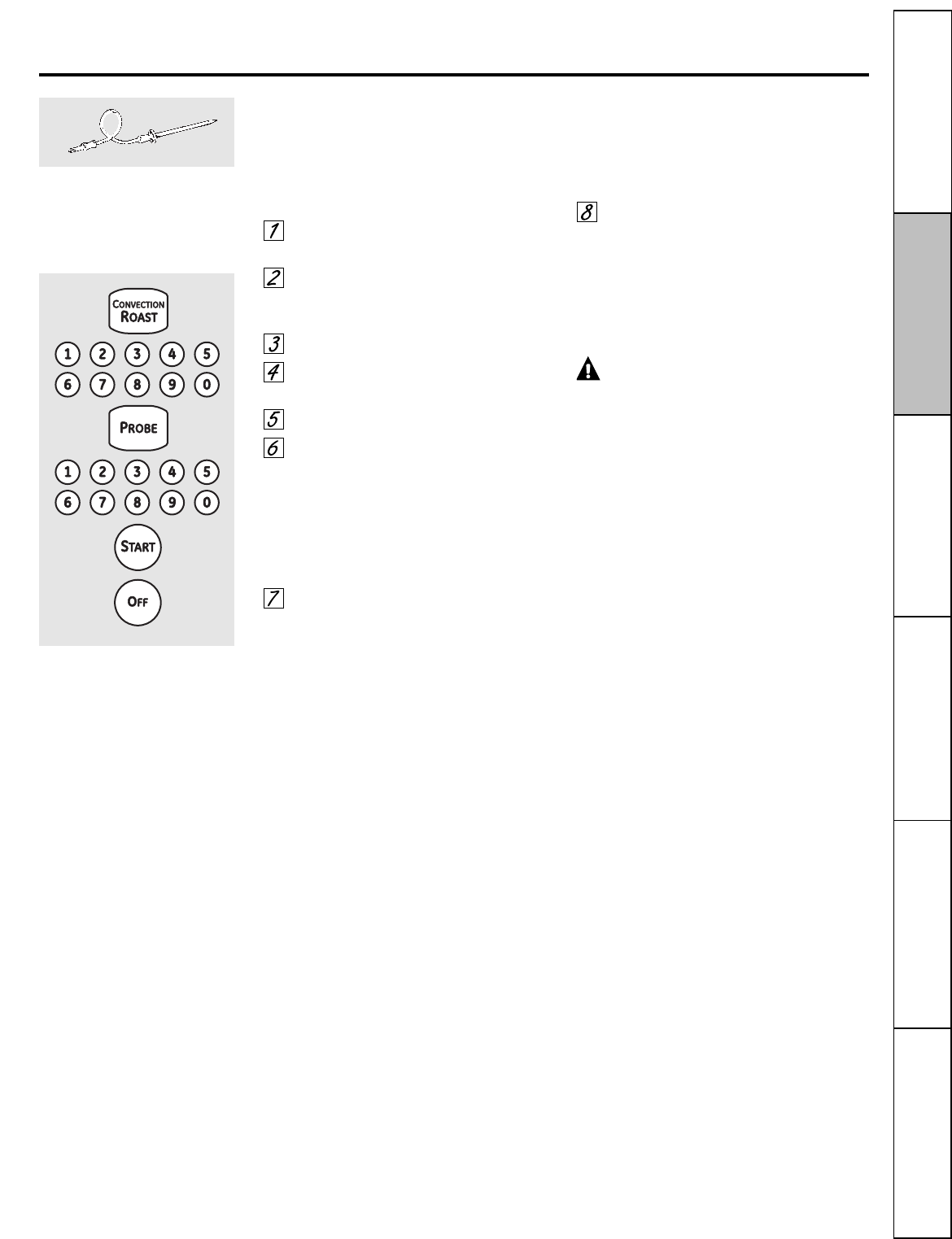
23
geappliances.ca
How to Set the Upper Oven for Convection Roasting when Using the Probe
The display will flash PROBE and the oven
control will signal if the probe is inserted into
the outlet, and you have not set a probe
temperature and touched the START pad.
Place the rack in the rack position (A).
Insert the probe completely into the food.
Plug the probe into the outlet
in the oven. Make sure it is pushed
all the way in. Close the oven door.
Touch the CONVECTION ROAST pad.
Touch the number pads to set
the desired oven temperature.
Touch the PROBE pad.
Touch the number pads to set
the desired internal food temperature.
To change the oven temperature during
the Convection Roast cycle, touch the
CONVECTION ROAST pad and then touch
the number pads to set the new desired
temperature.
Touch the START pad.
When the oven starts to heat, the word
LO will be in the display.
After the internal temperature of the food
reaches 100°F, the changing internal
temperature will be shown in the display.
When the internal temperature of the
food reaches the number you have set,
the probe and the oven turn off and the
oven control signals. To stop the signal,
touch the OFF pad. Use hot pads
to remove the probe from the food.
Do not use tongs to pull on it—they
might damage it.
CAUTION: To prevent possible
burns, do not unplug the probe from the
oven outlet until the oven has cooled.
Do not store the probe in the oven.
NOTE:
n If the probe is removed from the food before
the final temperature is reached,
a tone will sound and the display will flash
until the probe is removed from the oven.
n You will hear a fan while cooking with
this feature. The fan will stop when
the door is opened but the heat will
not turn off.
n You can use the timer even though you
cannot use timed oven operations while
using the probe.
For best results when roasting large
turkeys and roasts, we recommend
using the probe included in the
convection oven.
Operating
Instructions
Care and Cleaning
Installation
Instructions
Troubleshooting
Tips
Safety Instructions
Consumer Support



